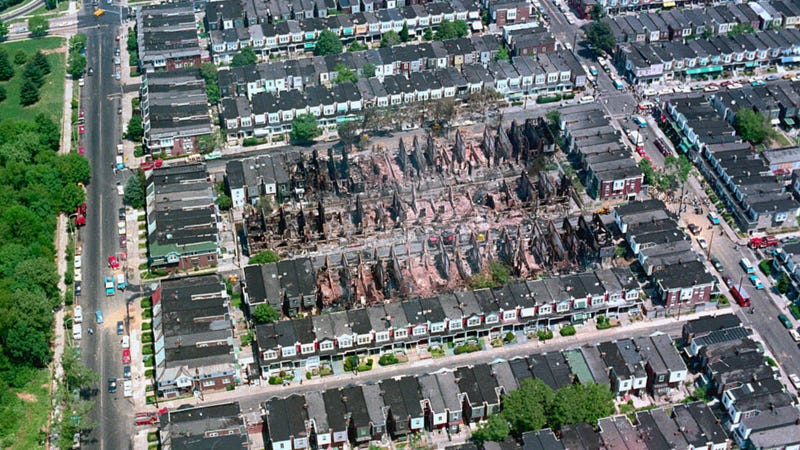
PHILADELPHIA (KYW Newsradio) — More human remains from the 1985 MOVE bombing have been discovered at the Penn Museum.
After completing a comprehensive inventory of the biological anthropology section, museum officials discovered the suspected remains of 12-year-old Delisha Africa, one of the five children and six adults killed on May 13, 1985, when the Philadelphia Police Department conducted an air strike over the Cobbs Creek headquarters of Black liberation group MOVE during an armed standoff. More than 60 homes in the neighborhood burned to the ground.
In 2021, University of Pennsylvania officials issued a public apology, acknowledging that the institution had kept bones from at least one victim after assisting in the forensic investigation that followed the bombing.
Shortly after that, a box of remains from bombing victims was uncovered at the Philadelphia Medical Examiner’s Office. The city said they had been kept after autopsies were completed.
The Penn Museum said it immediately notified the child’s family upon the discovery and said it’s not yet known how the remains found this week were separated from the rest.
The museum issued a statement this week, saying, in part:
“We are committed to full transparency with respect to any new evidence that may emerge. Confronting our institutional history requires ever-evolving examination of how we can uphold museum practices to the highest ethical standards. Centering human dignity and the wishes of descendant communities govern the current treatment of human remains in the Penn Museum’s care.”
Lionell Dotson’s sister, Katricia, was killed in the bombing. Her remains were discovered at the museum and given to the family in 2021.
Attorneys for Dotson, who has sued the city over the mishandling, said Thursday that Delisha Africa’s remains turned up “despite repeated assurances” that all materials from the bombing had been returned to the families.
His attorneys released the following statement:
“For nearly 40 years, the City of Philadelphia, the University of Pennsylvania and the Penn Museum have refused to treat the MOVE Bombing victims or their families with the even most basic level of respect and decency and this latest revelation is just the most recent in a long line of atrocities Black folks in America have had to live with. We are disgusted and disappointed but, unfortunately, we are not surprised.
“The damage Penn has done is absolutely appalling and unforgivable. It’s time they did the right thing so these children can finally rest in peace.”
Councilmember Jamie Gauthier, who represents the city’s 3rd District, which includes the Penn Museum and the community where the MOVE bombing took place, called the situation "absolutely unacceptable."
"The Penn Museum has demonstrated a profound disrespect for Black life and Black death,” Gauthier said in a statement released on Thursday. She called on the museum to make amends.
“This must include working in a real and authentic way with the descendant community to swiftly review the museum's full inventory and return additional remains in the museum's possession to their family or community, so they can finally be put to rest.
"In life or death, it is never ok to use Black bodies as trophies or specimens to enrich an institution."
